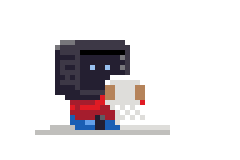The RPM packages in the base 'fedora' image can be older than the those
currently available in the DNF 'updates' repository [1], but at the same
time newer than those available in the DNF 'fedora' repository [1]. The
first part happens because the base image isn't updated as often as the
individual packages, so the 'updates' repository can have newer RPMs.
The second part happens because the base image does get updated after a
stable Fedora has been released, and hence can have newer RPMs than the
'fedora' repository.
This is complicated by the fact that packages can get pulled directly
from Fedora's Koji build system into the base 'fedora' image before
they make it to one of the well-known repositories like 'fedora' or
'updates' [1]. These packages are marked as having come from the
koji-override-0 repository.
All that combined can lead to unexpected behaviour when DNF is invoked
to reinstall or swap the RPM packages in the base image. Some examples
below.
The base fedora:36 image contains glibc-minimal-langpack-2.35-20.fc36
that came from koji-override-0, while 'fedora' and 'updates' have
glibc-all-langpacks-2.35-4.fc36 and glibc-all-langpacks-2.35-22.fc36
respectively. This leads to:
STEP 8/15: RUN dnf -y swap glibc-minimal-langpack glibc-all-langpacks
Last metadata expiration check: 0:00:03 ago on Wed Feb 1 12:37:04...
Dependencies resolved.
======================================================================
Package Arch Version Repository
======================================================================
Installing:
glibc-all-langpacks x86_64 2.35-4.fc36 fedora
Removing:
glibc-minimal-langpack x86_64 2.35-20.fc36 @koji-override-0
Downgrading:
glibc x86_64 2.35-4.fc36 fedora
glibc-common x86_64 2.35-4.fc36 fedora
That's unexpected. Instead of upgrading all the glibc sub-packages to
the latest version from 'updates', it's downgrading them to the older
version from 'fedora'.
Similarly, the base fedora:36 image has bash-5.2.9-2.fc36.x86_64 from
koji-override-0, and there is bash-5.2.15-1.fc36.x86_64 in 'updates'.
This leads to:
STEP 10/15: RUN dnf -y reinstall $(<missing-docs)
Last metadata expiration check: 0:00:06 ago on Wed Feb 1 12:37:04...
Package acl available, but not installed.
No match for argument: acl
Installed package bash-5.2.9-2.fc36.x86_64 (from koji-override-0) not
available.
That's unexpected. Instead of upgrading bash to the latest version from
'updates', it's simply skipping the 'reinstall', which means that the
documentation that was stripped out in the base image doesn't get
restored.
Updating all the RPM packages in the base 'fedora' image to match the
contents of the 'updates' repository before making any changes to the
image's package set will avoid such unexpected behaviour.
Only the images for currently maintained Fedoras (ie., 36, 37 and 38)
were updated.
[1] https://docs.fedoraproject.org/en-US/quick-docs/repositories/
https://github.com/containers/toolbox/pull/1226
|
||
|---|---|---|
| .github/ISSUE_TEMPLATE | ||
| data | ||
| doc | ||
| images | ||
| playbooks | ||
| profile.d | ||
| src | ||
| test/system | ||
| .codespellexcludefile | ||
| .gitignore | ||
| .gitmodules | ||
| .mailmap | ||
| .zuul.yaml | ||
| CODE-OF-CONDUCT.md | ||
| CONTRIBUTING.md | ||
| COPYING | ||
| gen-docs-list | ||
| GOALS.md | ||
| meson.build | ||
| meson_options.txt | ||
| meson_post_install.py | ||
| NEWS | ||
| README.md | ||
| SECURITY.md | ||
| toolbox | ||
Toolbox is a tool for Linux, which allows the use of interactive command line environments for development and troubleshooting the host operating system, without having to install software on the host. It is built on top of Podman and other standard container technologies from OCI.
Toolbox environments have seamless access to the user's home directory, the Wayland and X11 sockets, networking (including Avahi), removable devices (like USB sticks), systemd journal, SSH agent, D-Bus, ulimits, /dev and the udev database, etc..
This is particularly useful on OSTree based operating systems like Fedora CoreOS and Silverblue. The intention of these systems is to discourage installation of software on the host, and instead install software as (or in) containers — they mostly don't even have package managers like DNF or YUM. This makes it difficult to set up a development environment or troubleshoot the operating system in the usual way.
Toolbox solves this problem by providing a fully mutable container within
which one can install their favourite development and troubleshooting tools,
editors and SDKs. For example, it's possible to do yum install ansible
without affecting the base operating system.
However, this tool doesn't require using an OSTree based system. It works equally well on Fedora Workstation and Server, and that's a useful way to incrementally adopt containerization.
The toolbox environment is based on an OCI
image. On Fedora this is the fedora-toolbox image. This image is used to
create a toolbox container that offers the interactive command line
environment.
Note that Toolbox makes no promise about security beyond what's already available in the usual command line environment on the host that everybody is familiar with.
Installation & Use
See our guides on installing & getting started with Toolbox and Linux distro support.


